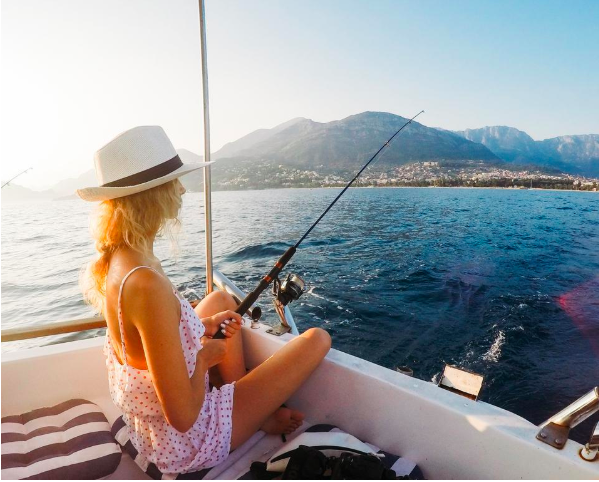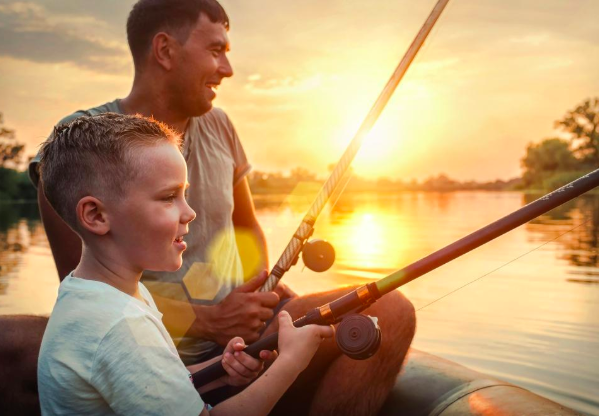Every sport or hobby fosters a community of like-minded enthusiasts who all want to enjoy themselves and their craft. Fishing is a particularly close community as it joins together man and nature, and often requires a struggle of strength and wits to determine a victor. As with any community, there are unspoken rules that should be followed by all members, both new and old. From tasks such as cleaning your fishing tools to treating others the way you want to be treated, fishing communities expect anglers to be good stewards of the fish, water and each other.
Whether you’re new to the sport of fishing altogether, you’re trying a new kind of fishing or you’re heading to a new area, there are universal rules you should know before heading out on the water. These rules ensure that everyone has a fun time and that the fish and nature are taken care of so other anglers can enjoy them tomorrow.
1. The Golden Rule.
Before you begin any task, hobby or journey in life, if you’re going to be coming into contact with other people, follow the “Golden Rule”: Treat others the way that you want to be treated. In fishing, this little rule goes a long way.
When you’re out on a boat in the hot sun all day, and you’re not getting many bites, it can become a frustrating trip. Some people let this bad luck get to them and they let their tempers flare. Some anglers bully others with their boats, including invading their space, running over lines or spooking the fish with their boat motor. Much like road rage, “boat rage” is a real danger and people have been hurt on the water because of angry confrontations during fishing trips.
Be considerate of other people fishing around you and treat others with respect and kindness. Sometimes, a simple but polite approach can defuse a disagreement on the water quickly. Many of the traditions of fishing stem from the Golden Rule.
2. Prepare to Launch.
In busy seaside or lakeshore communities, the lines to launch your boat can become extremely long in the summertime. Hot weather and long lines can quickly lead to flaring tempers, especially if you haven’t properly prepared your boat for launch ahead of time.
If you’re unfamiliar with how to back up a boat trailer into the water next to a dock, don’t let your first time be on a busy Saturday morning in July. Instead, practice on dry land with plenty of space, using barrels or a fence as a guide.
Once you’ve backed your boat into the water, be fast: launch it, move it down to the end of the dock and tie it until you’ve parked your vehicle. Make sure all members of your party are ready to go once you get back. Don’t wait on someone for more than a few minutes, which can back up traffic even more. Make arrangements to pick them up later or in a different location if they are going to be more than two minutes late.
3. Watch Your Wake.
No-Wake zones are not the only places you should reduce your throttle and speed. If you’re passing by other anglers, kayakers or swimmers, you need to slow down. For fishing in particular, if you’re speeding around and making too much noise and wake, you could be scaring away the very fish you intend to try to catch. Be respectful of others who are in the area, and mindful of their time.
4. Keep the Space.
Once you’ve quietly moved into a good fishing location, keep a wide berth around other people who are already fishing. Don’t fish on top of them and give them plenty of space. Likely, they’ve staked out this particular spot or they’ve already put a good amount of time into fishing already, and people can become very territorial.
If you want to get around where someone is already fishing, do the polite thing and ask them if it’s okay. They will likely say yes and not perceive you as rude for running over their lines or space. In essence, treat the space around them like the deck of their boat.
5. Respect the Fish.
Part of being a good steward of the water and the fish is not taking more than you can eat. Or releasing them safely in catch and release waters. This ensures that there will be enough stock for other anglers, and that your actions won’t endanger the population of fish.
If you’re tournament fishing or just fishing for fun instead of food, be courteous to your fish. Limit the time they’re out of the water and quickly remove the hook. Use a net to help protect the coating of the fish, try to not use gloves, and use barbless hooks whenever possible. Be respectful of the fish and treat them with care as you release them back into the water.
6. Be Quiet.
Just as your boat can spook fish below, loud, boisterous chatter and music can also keep the fish away from your boat–and from others. Keep the noise to a minimum so that everyone can enjoy their day.
7. Leave No Trace.
Pick up your trash and other items and ensure that you’re not dumping or spilling harmful chemicals or lots of food items into the water. You should leave the water the way you found it. There should be no trace of humans when you’re gone.
Clean your fishing tools and put everything back into your tackle box. If you have any live bait left over, it’s a courtesy to offer it to nearby anglers who may still be fishing.
If you’re cooking on the water, bring a utility knife with you to quickly clean your fish and prepare it for the grill. If you have an EDC knife that you carry with you at all times, such as a folding knife, these can work well for cleaning and gutting your fish.
With a little cleaning in between, you can also use your knife for carving the fish before plating it. Just be sure to clean up after dinner, too. Bring a trash bag to put all your refuse in and bring it back to the dock to dispose of properly.
Final Thoughts
Being a good steward on the water is important for a successful and enjoyable fishing trip. Treat other anglers, the water and the fish with respect, and you will be a respectful fisherman on the water.


